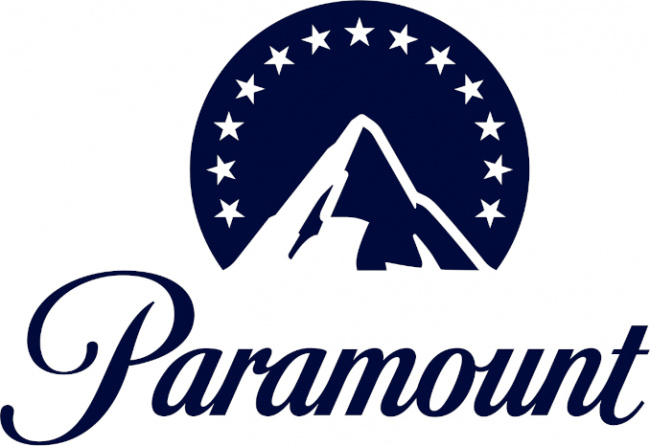Call it a May-December relationship. Paramount, one of the last of the old time Hollywood studios, today finally succumbed to its insistent suitor, gaudy newcomer Skydance Media (see “Skydance Gets Paramount“), at least according to its Board committee tasked with entertaining merger offers. This is an interesting moment in the ongoing entertainment industry shakeout, with some implications for geek culture.
Strange New Worlds. At the top of every fan’s mind is the fact that this deal will put Star Trek in new hands. Considering that not every science fiction franchise has blossomed under more ambitious corporate management, this is potentially a big deal.
The good news is that Skydance has demonstrated an understanding of how to extend megahit franchises (producing Top Gun: Maverick and installments of Transformers and Mission Impossible, among others). It has also produced quality science fiction, doing a good job with Isaac Asimov’s well-nigh unfilmable high concept series Foundation. The bad news is that Skydance also produced all-time series stinker Star Trek: Into Darkness, but we probably should not hold that against them.
Skydance owner/CEO David Ellison is a nepo-baby, like most next-generation Hollywood executives, and a failed actor, like most Hollywood service workers. His father, mega billionaire Larry Ellison, founded Oracle, the maker of mind-bendingly complicated enterprise software. He has reportedly thrown some of his personal wealth and prestige behind the Paramount deal. David’s sister Megan runs the prestige-oriented Annapurna Pictures, producers of Her and Zero Dark Thirty among others. By most accounts, David is a practical, hands-on manager with real vision, ambition and the ability to delegate. At age 41, he’s still young enough to think big and take risks.
A weight around the necks of Comic-Con attendees. One thing that Ellison has purchased along with Paramount Studios, CBS and MTV, is this year’s San Diego Comic-Con badge. Not just ones for him and his family, who would probably be welcome regardless, but all of them.
Preordered SDCC badges started arriving in the mailboxes of lucky fans, pros and press for the past couple of weeks, and you can’t avoid noticing that they are emblazoned with the monochromatic Paramount+ logo against a field of deep blue. The logo is a mountain, but in case you missed that, the tag line helpfully identifies it as “a mountain of entertainment.”
Yep, they could have put a metallic Star Fleet insignia on there (and, come on, how cool would that have been), or a hero shot of the Enterprise, or any one of a dozen pieces of artwork on there, but decided that what they really wanted every fan to see was their corporate logo.
“It’s rare for a studio or entity to brand a sponsorship with their logo,” observed San Diego Comic-Con VP of Strategy and Communication David Glanzer. “Usually they would use art from a project they are trying to promote. But I know from experience that when they do that, the cost comes out of the project budget, and they have to ask what project this would get billed to and do they have the money to spare. This time the studio itself was prepared to bear that burden, and we are grateful to have their support.”
Asked if it was too late to update the badge to reflect the Skydance acquisition, Glanzer dryly replied “Yes.”
So, one way or another, the deal will be top of mind for everyone at Comic-Con later this month.
NASDAQ clicks on Webtoon. The Paramount acquisition isn’t the only big market move from a comics or comics-adjacent business this month. Last month Webtoon made its debut on the Nasdaq, raising around $2.8 billion. Since the IPO, the stock has been trading mostly under its $23 opening price, although it did see some initial interest.
“On day one of trading, yes there was a 10% increase in the stock price, but I am not going to say if that was satisfactory or not,” said Webtoon CEO Junkoo Kim in an interview with Forbes (ok, me…) on IPO day. “This is part of our long journey into the future.”
Kim said the company was interesting to investors because it was not only content and IP, but content packaged with data. “Our IP has been verified in various ways, which is why streamers enjoy working with us. Disney invests an enormous amount in a single IP, whereas at Webtoon, we have a diversity of content we try to develop.”
In a comment in the interview that did not run on Forbes, Kim talked about the importance of the Japanese market and the company’s continued investments there.
“Japan is important not just for revenue generation, but because of the creator community. We believe in the future potential for local creators in Japan and elsewhere, and they understand that working with the platform is the best way to distribute their content globally,” he said.
He also emphasized the company’s pitch to creators everywhere, reiterating points the company made earlier this year after a controversy about the company’s creator terms (see “Webtoon Dustup Highlights Creators, Publishers and the Scramble for IP“). Kim said: “Our agenda is not to control IP or creators, but to help them reach a wider audience within our platform. They have all the rights and final decision-making.”
Not the last domino. A decade after Netflix sent Hollywood cascading into the Streaming Wars, the shakeout and the battle for new IP continues. Investors and VCs gorged on record-high stock prices are looking around for bargains, trophies, and the Next Big Thing, and there are companies in the comics space that check multiple boxes on that account.
As we head into Comic-Con this year, rumors are swirling about the pending acquisition of one large comics publisher and the plans of several others with suspected ties to studios, producers and streamers. After a couple of unusually slow summers, we might finally see a return to big industry announcements.
The opinions expressed in this column are solely those of the writer, and do not necessarily reflect the views of the editorial staff of ICv2.com.”
Rob Salkowitz is the author of Comic-Con and the Business of Pop Culture and a two-time Eisner Award nominee.
Source: ICv2





